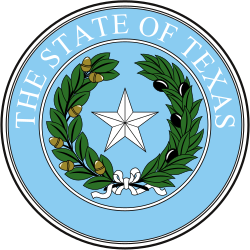| |||||||||||||||||
| |||||||||||||||||
 County results Connally: 40–50% 50–60% 60–70% 70–80% 80–90% Cox: 40–50% 50–60% 60–70% 70–80% | |||||||||||||||||
| |||||||||||||||||
| Elections in Texas |
|---|
 |
The 1962 Texas gubernatorial election was held on November 6, 1962, to elect the governor of Texas. Incumbent Democratic governor Price Daniel was running for reelection to a fourth term, but was defeated in the primary by John Connally. Although Connally was easily elected, Republican Jack Cox's 46% of the vote was the highest received by any Republican candidate for governor since Edmund J. Davis's victory in 1869.

